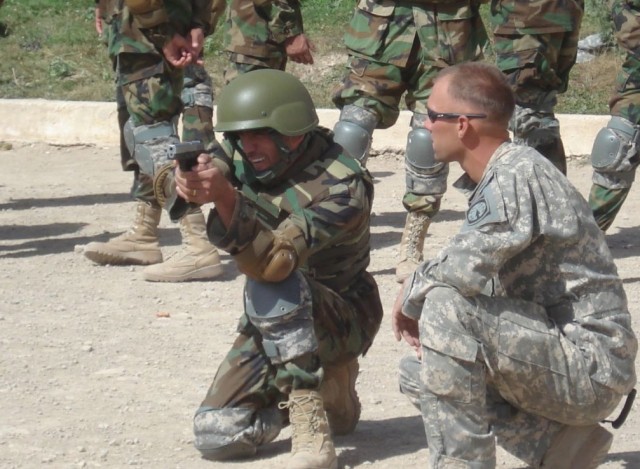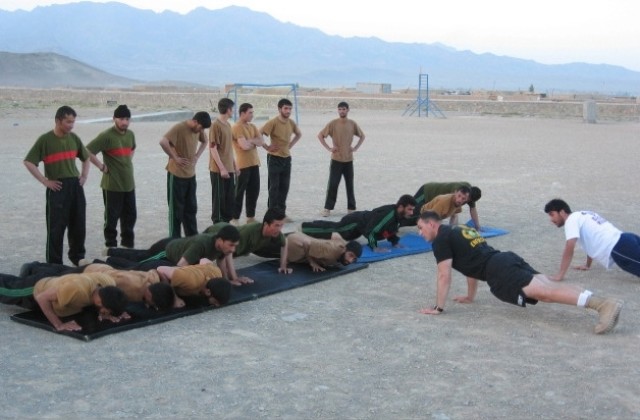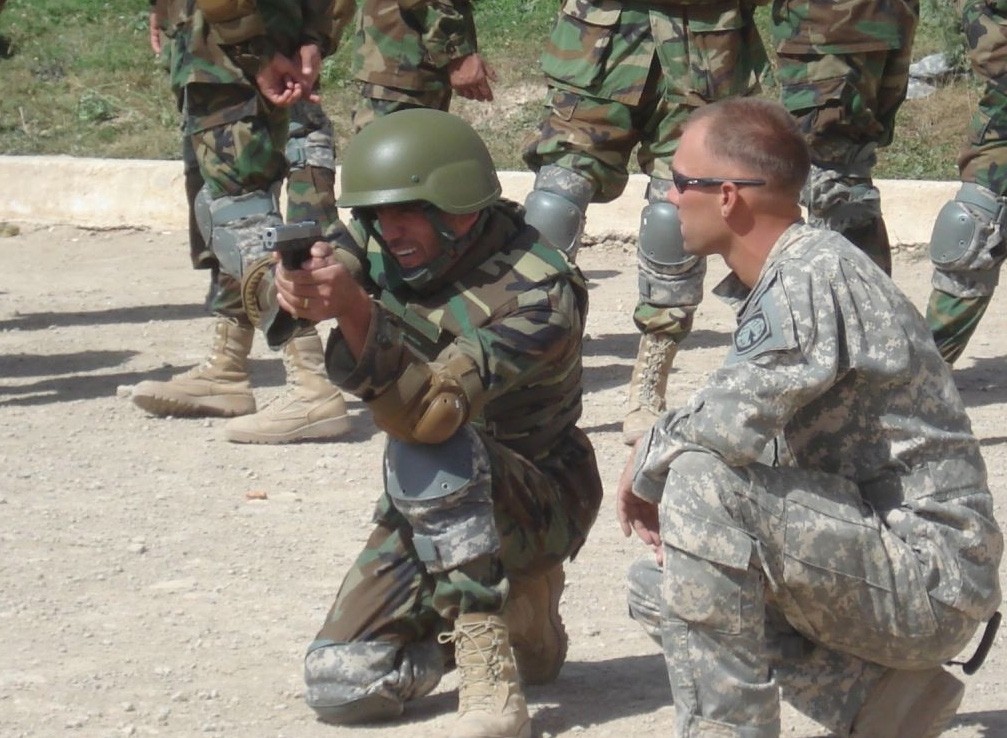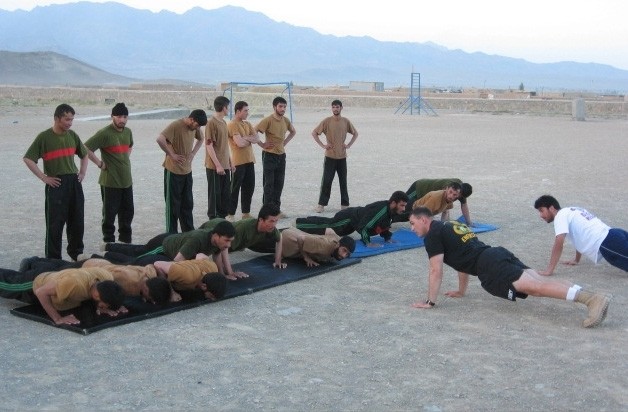BAGRAM AIR FIELD, Afghanistan - Working for the past six months to train and certify the first-ever Afghan National Army military police company, Soldiers from Task Force Ripcord, the 503rd Military Police Battalion (Airborne) have been in coordination with Afghan Regional Security Integration Command - East to see this endeavour through at Forward Operating Base Thunder, Paktya province.
Helping to train a host nation's military police force presents many levels of challenges. Since this is the first Afghan MP Company for the ANA, the establishment and the training programs were created entirely from scratch.
"I feel honored to be part of this historic initiative," said Capt. Mike Miranda, an ANA MP mentor with TF Ripcord. "The challenges and frustrations were all made worth it when I saw the first graduates hoist their diplomas in the air."
The plan to model the MP Company after the U.S. Army's MP Corps was developed through a series of meetings. Maj. Gen. Abdul Khaliq, commander of the MP Company's parent unit, the 203rd Corps, and leaders from TF Ripcord worked through planning and coordination points at these meetings.
To develop a self-sufficient Afghan MP Company, TF Ripcord established three phases with clear objectives aimed at equipping, training and sustaining the new unit.
Phase one outlined the facilities, equipment, personnel and training necessary to conduct basic law enforcement operations.
Phase two focused on increasing the MP company's personnel and equipment strength while establishing a formalized advanced training program focusing on the MP's role in missions.
The third and final phase is more specific in law-and-order mission training, including Provost Marshal Office operations. Officer basic training course and non-commissioned officer courses were added during this phase to cover collective and leader tasks and fundamental leadership principles.
Because these phases are event driven, it is difficult to predict how long an MP company will spend in each phase.
The recently formed 203d Corps MP Company consisted of roughly 60 ANA soldiers that volunteered specifically to become military police, all without any previous police training.
In early August, the TF Ripcord mentorship team and the new ANA cadre passed through phase one and prepared to begin phase two with the first of the new Afghan MP students in the course.
Col. Maideen, the MP company commander, selected 20 Afghan soldiers, a platoon-size element, for enrolment in the first course. Once complete, the other platoons will individually complete the training.
In order to appropriately train the students, the TF Ripcord mentors initially adopted a three-week training course modeled after the U.S. Army Military Police School's program. However, due to cultural barriers and lower literacy levels, TF Ripcord mentors adapted the Afghan course to include more practical exercises than lecture-style classes.
Students began early each day with physical training before reporting for their scheduled classes and training. The students were held to high discipline standards throughout the entire course to help instill professionalism and the Military Police Code of Ethics.
Classes included investigations, interviews, evidence collection, crime-scene protection, traffic stop and searches, unarmed self defense, as well as theoretical classes such as the protection of human rights, rule of law, ethics and levels of force.
In addition to their law enforcement training, the Afghan MP students received intensive training on critical combat-oriented skills such as counter IED measures, advanced first aid and weapons training.
The students put this knowledge together in a culminating, collective exercise that simulated the quick decision-making requirements of a law enforcement patrol. In teams, the students patrolled FOB Thunder while the instructors set up various incidents requiring MP support. The students were required to respond to these incidents and demonstrate proficiency in all tasks to be certified and graduate.
Now that the program is underway and the first class has graduated, TF Ripcord welcomes the challenge of mentoring the new Afghan MPs as they implement their new skills. To ease the ANA into law enforcement operations, TF Ripcord established an operational cycle rotation plan that will allow each platoon to focus on training, law enforcement or support operations. When a new class graduates, they immediately begin work.
To supplement the new Afghan MP Company, TF Ripcord and the 203rd Corps Legal Office are working to construct a legal complex on FOB Thunder consisting of a new Military Police Station, detention facility and courthouse.
The establishment of a professional MP Corps will help bridge the gap between the Afghan National Army and the Afghan National Police as well as provide the ANA with legitimate means to enforce standards and discipline within their ranks.
Ultimately, the goal is to expand the Afghan MP Company to the point where one platoon provides direct support to each of the four Brigades in the 203rd Corps while a Headquarters Detachment provides law enforcement support for FOB Thunder and the 203rd Corps Headquarters unit.
"Thanks largely to the efforts of ARSIC-E to develop the 203rd Corps into a model unit for the ANA, these soldiers were granted the unique opportunity and creative latitude to design training and doctrine that best met the needs of the ANA," said Lt. Col. Robert Byrd, TF Ripcord commander.




Social Sharing